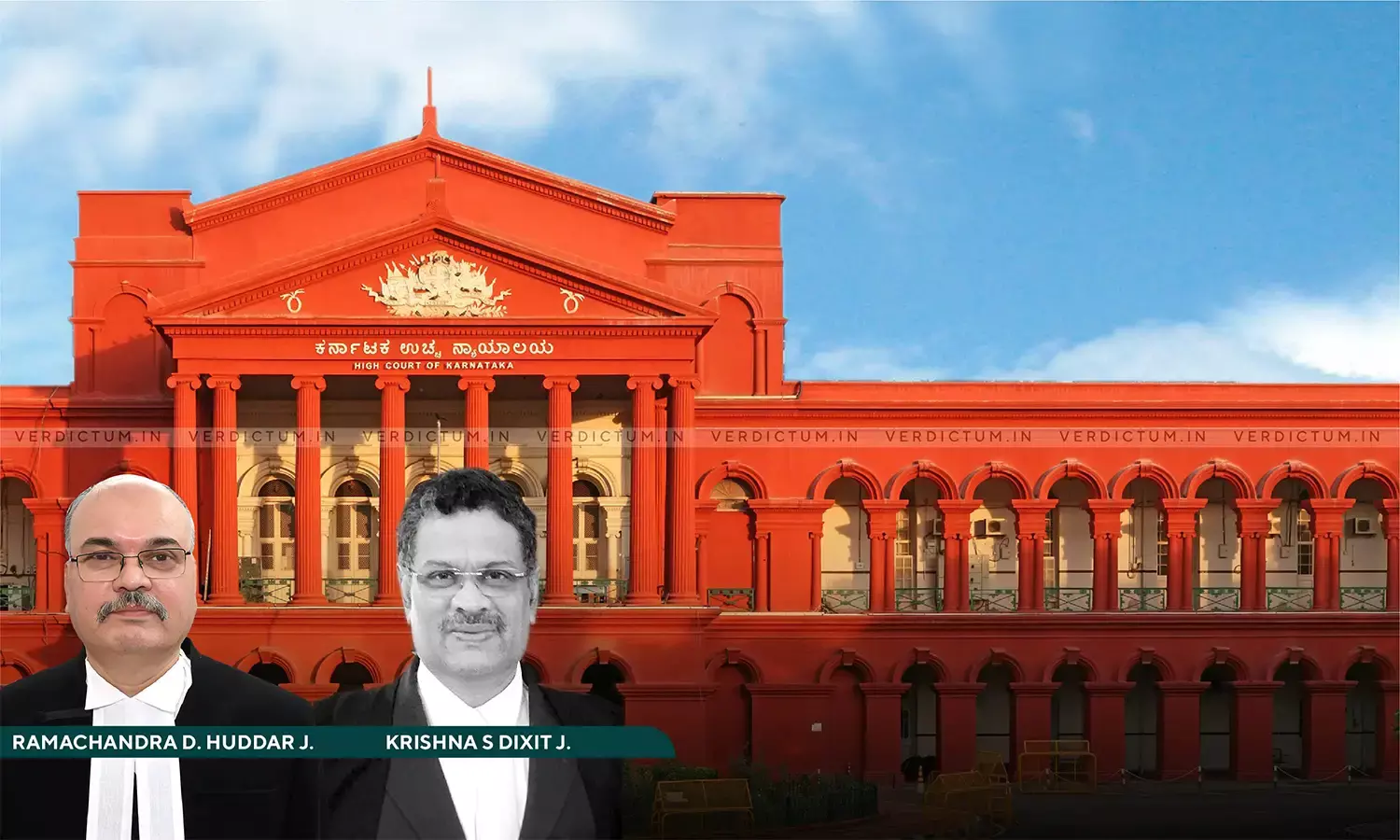Retention Of Money Belonging To A Citizen By State Entities Amounts To Temporary Acquisition Requiring Compensation Under Article 300A Constitution: Karnataka HC
The Karnataka High Court observed that retention of money belonging to a citizen by state entities amounted to temporary acquisition of property for which compensation under Article 300A had to be paid.
The Bench directed the State of Karnataka to refund the bid amount of a bidder in a land auction with interest. The Court noted that the limited liability on account of “demonstrable culpability” of the state entities entitled the bidder to an equitable relief and “denying the same would shake the conscience of the Court.”
A Division Bench of Justice Krishna S Dixit and Justice Ramachandra D. Huddar observed, “We are not adjudging the tortuous liability of the State; what we are inclined to do is to award interest on the amount to be refunded. Secondly, the auction was held way back in the year 2005 and since then years have rolled. The limited liability on account of demonstrable culpability of the appellants, entitles the respondent – writ petitioner to an equitable relief.”
HCGP G.S. Aruna represented the appellants, while Sr. Advocate K.N.Phaneendra appeared for the respondent.
A public auction was held in 2005 for land that the State had forfeited under the Karnataka Land Reforms Act, 1961. The bidder had deposited 25% of the bid amount. However, the land's forfeiture was later nullified by the Karnataka Appellate Tribunal, restoring it to the original owner. Consequently, the State issued an endorsement in 2016 to refund the bidder’s deposit without interest, which led to the filing the writ petition.
The High Court noted that the State entities under Article 12 of the Constitution should conduct themselves scrupulously when dealing with citizens. The State hastily notified the land for public auction despite pending appeals challenging the forfeiture, which were eventually allowed by the Tribunal.
“Money belonging to a citizen is his property. If that is retained by the State entities falling under Article 12, that amounts to temporary acquisition of property for which as a matter of rule compensation has to be paid going by Article 300A jurisprudence,” the Court remarked.
The Bench stated that the fact of the challenge should have been mentioned in the auction notification, allowing participants to make an informed decision. The bidder was kept in the dark and deposited 25% of the bid amount in 2005. The State's failure to refund this amount remained unexplained. The Bench remarked that the culpable act, whether termed a 'tort' or another 'actionable wrong', should not go without consequences.
“It needs no research to know that the property prices have been sky-rocketing and at the same time the value of money is depleting. What the amount in deposit made way back in 2006 or later in 2019 could have bought, cannot buy it now, hardly needs to be stated,” the Court remarked.
Accordingly, the High Court partly allowed the appeal.
Cause Title: The State of Karnataka & Anr. v. Ramaiah Reddy (Neutral Citation: 2024:KHC:17767-DB)
Appearance:
Appellants: HCGP G.S. Aruna
Respondent: Sr. Advocate K.N.Phaneendra; Advocate Yadupathi G.




